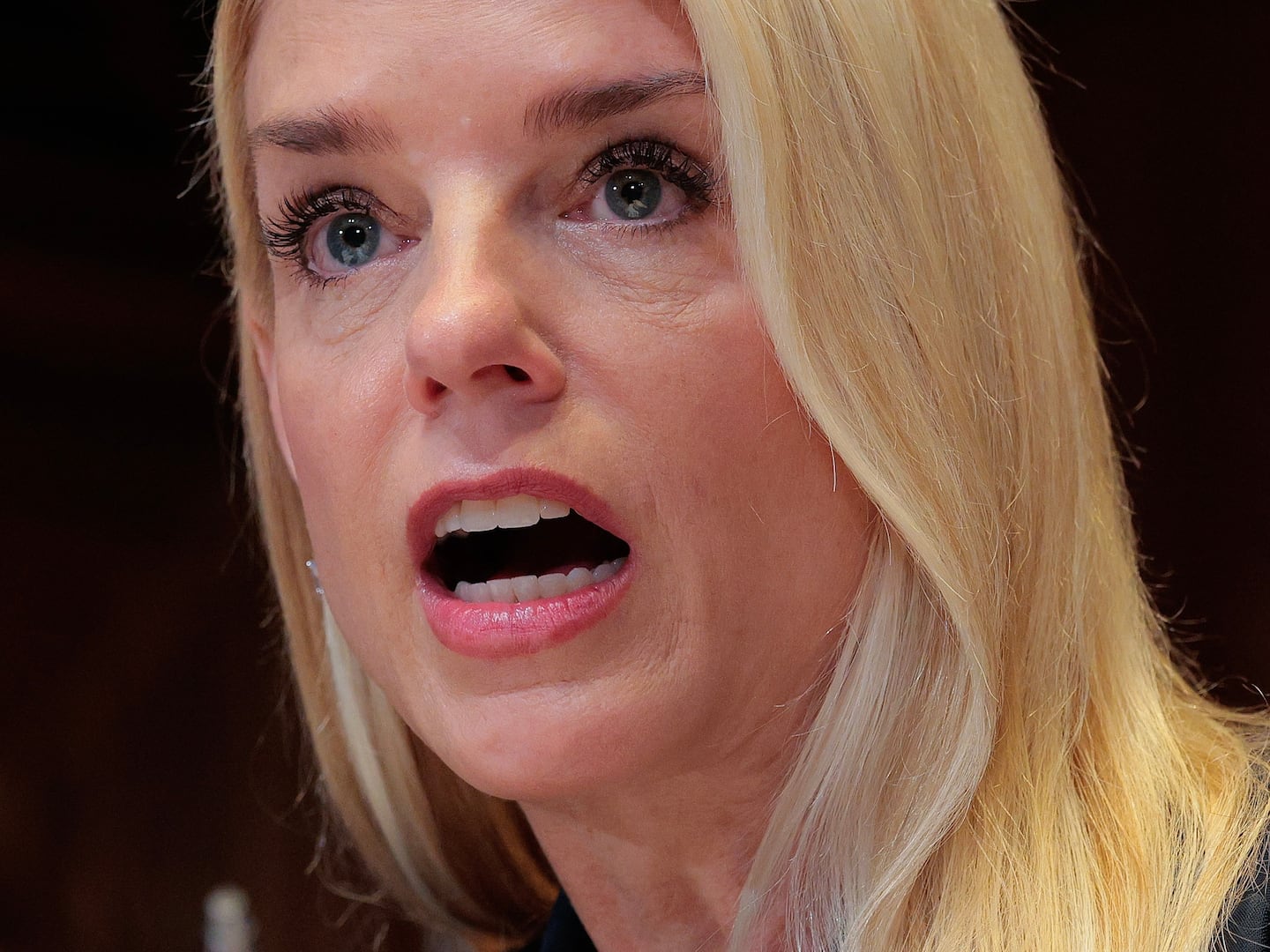The rapist who attacked a 16-year-old girl as she returned to her apartment building on Manhattan's Lower East Side at 2 a.m. on a wintry night in 1993 must have thought he had a free ride all these years. He followed his prey inside and began his violent assault by choking her with her own scarf, stealing her money and jewelry before subjecting her to a forcible rape. Like many victims, the courageous teen spent the next several hours in a hospital emergency room, where doctors examined her and prepared an evidence collection kit that they knew could supply a forensic link to the stranger who committed the devastating crime. The exams are intrusive and impersonal, too, yet survivors submit to them in hopes that the results will bring a perpetrator to justice.
But there were no DNA databanks operative at that time, and no suspect against whom to compare the DNA left on the young woman's body. So her evidence kit was stored alongside thousands of others in the NYPD's Property Clerk's Office. Seven years later, in September, 2000, I was among a handful of prosecutors who stood beside Mayor Giuliani when he announced that New York City would be the first jurisdiction in the country to fund the outsourcing of untested kits, of which there were 16,000 at the time—not only to solve the brutal crimes that had occurred, but to prevent these assailants, who are often chronic recidivists, from re-offending. The sample from the 1993 case was analyzed in 2002 as part of the NYPD's innovative backlog program, and resulted in a DNA profile of the rapist. Although no one knew his name, he was indicted as "John Doe" in order to stop the clock—the statute of limitations that would otherwise have barred his prosecution after ten years. In February of this year, following his felony drug conviction in the Commonwealth of Virginia, the DNA fingerprint of 46-year-old Alberto Barriera was entered into the National DNA databank—identifying the 1993 "John Doe" rapist and solving the 17-year mystery of the horrific Eldridge Street crime. As the brilliant Manhattan prosecutor and DNA expert Martha Bashford, who will bring Barriera to justice, told the court last week: "The case is now older than the victim was when she was attacked."
That NYPD program eliminated New York City's backlog. But the shocking fact is that to this day, more than a quarter of a million evidence-collection kits remain untested in cities and towns across America, gathering dust on shelves in police department lockers and forensic biology labs, because legislators have refused to devote the financial resources necessary to hire the scientists and supply the equipment to complete this work.
More than a quarter of a million evidence-collection kits remain untested in cities and towns across America.
Mariska Hargitay, one of the most talented actors working today, is part of the acclaimed cast of Law & Order: Special Victims Unit, and has played the award-winning role of Detective Olivia Benson for more than a decade. Here's why I love Mariska. At the end of the day, she could have used that star-power to champion any good cause—disease, poverty, natural disasters—all of which would have benefited from the dedication of her big heart and intelligent commitment. But through her fictional role, she came to know as much about the issues of rape victims and the criminal justice system as anyone I know, and her passion led her to create the Joyful Heart Foundation, to help survivors of intimate assaults heal and restore their lives. At this year's benefit gala in May, a 30-year-old woman from California spoke to the crowd, telling a story with a different twist. She was abducted from a carwash at knifepoint shortly after her seventeenth birthday in 1996 and raped repeatedly by her attacker. Although treated immediately, her kit was never sent out for testing, Los Angeles being among the worst of the large cities to deal with this issue. It was thirteen years later, when this victim thought the evidence had been lost or discarded, that through the advocacy of a woman working with Peace Over Violence and Joyful Heart, the kit was located and finally tested. In the reverse of the New York City situation, her attacker's DNA had been entered into the national databank not long after the carwash kidnapping, when he raped his wife in Ohio, and thereafter another woman in that state whom he didn't know. Neither of those crimes need have occurred if the L.A. evidence had been processed instead of warehoused.

Life imitates art imitates life. Neal Baer, a member of the Joyful Heart Board and the executive producer of Law & Order: SVU, was as moved by the story told at the gala as Mariska and everyone in the audience, and as overwhelmed by the dreadful statistics that document broken lives and unsolved crimes. Baer began to make notes on his napkin, determined to dedicate an episode of the new season's show to this issue. By the next day, Baer had outlined a story called "Behave," which will air tonight, taking viewers into the property lockers with Det. Benson as she enters a police storage unit and sees endless shelves of boxes and bags of evidence never examined for submission to a database.
With her characteristic determination to do justice, we watch the fictional detective start calling jurisdictions around the country to ascertain the ugly truth. Houston? 4,000 untested kits. Birmingham? 2,000. Phoenix? 4,100. Detroit? 16,000, which led to closing the lab there and turning all the evidence over to the already-swamped state facility. Authorities in a dozen major cities—from Baltimore to Columbus to Anchorage—admit to having no idea how many kits are floating around somewhere in storage. And then there are cities like Los Angeles that threw thousands of them away a decade ago, figuring wrongly that they would be of no use in criminal investigations.
The results in New York have been stunning. Every rape kit is tested, there has not been a backlog since the NYPD project began ten years back, the arrest rate for this crime has soared to seventy percent—triple the national average—and offenders are connected to many other violent crimes. There's no backlog, either, in Palm Beach County, Florida, where the head of the lab, Dr. Cecilia Crouse, has her scientists pulling sexual assaults from the queue of crimes submitted and handling them first, "because the recidivism rate supports the prioritization of these cases." The state of Wisconsin, where the issue was key in the last Attorney General's race, eliminated its backlog by hiring double the number of analysts to perform the DNA tests and committing to a general overhaul of the antiquated facility, tackling head-on the understaffing and underfunding problems of so many of these labs across the country. The fact is, this is a problem that can be solved. The fact is, it is a solution that will save countless lives.
The rape evidence collection kit backlog is a national tragedy. The federal databank now has more than eight million DNA profiles, each genetic fingerprint capable of identifying a violent criminal. Every dust-covered kit that sits untested in storage holds the key to solving scores of old cases—these assailants are believed to commit eleven rapes for every one to which they are formally linked. Even more powerful is the fact that by finally matching offenders to the old evidence and taking them to trial, crimes like rape and murder can be prevented.
I hope you'll be watching "Behave" on Wednesday night. I trust you'll be as outraged as Detectives Olivia Benson and Elliott Stabler—and I—feel about the failure of our government to allocate resources to locate and test every bit of evidence. Victims want their assailants identified, police and prosecutors can use the developed profiles to bring the most heinous criminals to justice, and forensic biologists have the ability to turn the contents of these little cardboard boxes into unique genetic fingerprints. This show gives voice to the dramatic need to change this situation, and provides each viewer with the power to fight for a just result. Tune in, learn the facts, and help us end the backlog.
(Former sex crimes prosecutor and novelist Linda Fairstein serves on the boards of directors of two victim advocacy groups: Joyful Heart Foundation and Safe Horizon.)
Linda Fairstein is a bestselling crime novelist and the former chief prosecutor of the New York County District Attorney's Sex Crimes Unit. Her new novel, Hell Gate, is released this week by Dutton.






